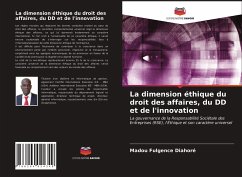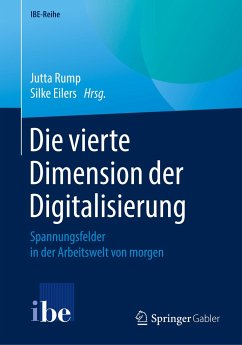
AXIOLOGICAL DIMENSION IN EMERGING ORGANIZATIONS
Ethical values as the core of human resources management in emerging organizations
Versandkostenfrei!
Versandfertig in 6-10 Tagen
29,99 €
inkl. MwSt.

PAYBACK Punkte
15 °P sammeln!
One of the great academic challenges of today is not only to naturalize epistemology or the production of new knowledge, but also to naturalize the axiology of science; this deals with theories, hypotheses, observations, discoveries, experiments, publications, attached to professional axiology, that is, to include criteria of professional ethical evaluation in the generation of new knowledge. Epistemic changes are one thing and ethical value changes in the various scientific disciplines, including mathematics, which are considered pure sciences that do not obey subjectivity, are another. To sh...
One of the great academic challenges of today is not only to naturalize epistemology or the production of new knowledge, but also to naturalize the axiology of science; this deals with theories, hypotheses, observations, discoveries, experiments, publications, attached to professional axiology, that is, to include criteria of professional ethical evaluation in the generation of new knowledge. Epistemic changes are one thing and ethical value changes in the various scientific disciplines, including mathematics, which are considered pure sciences that do not obey subjectivity, are another. To show these hypotheses, the axiological dimension of an important moment in history is analyzed, such as the discovery of differential and integral calculus; where the establishment of a new value was assumed, the property right of the first discoverer, which is underlain by non-epistemic values. Likewise, as the values of science are shown in the Kuhnian conception, whose sensitive turning point was to naturalize epistemic values as the only ones relevant to the philosophy of scientific practices.












